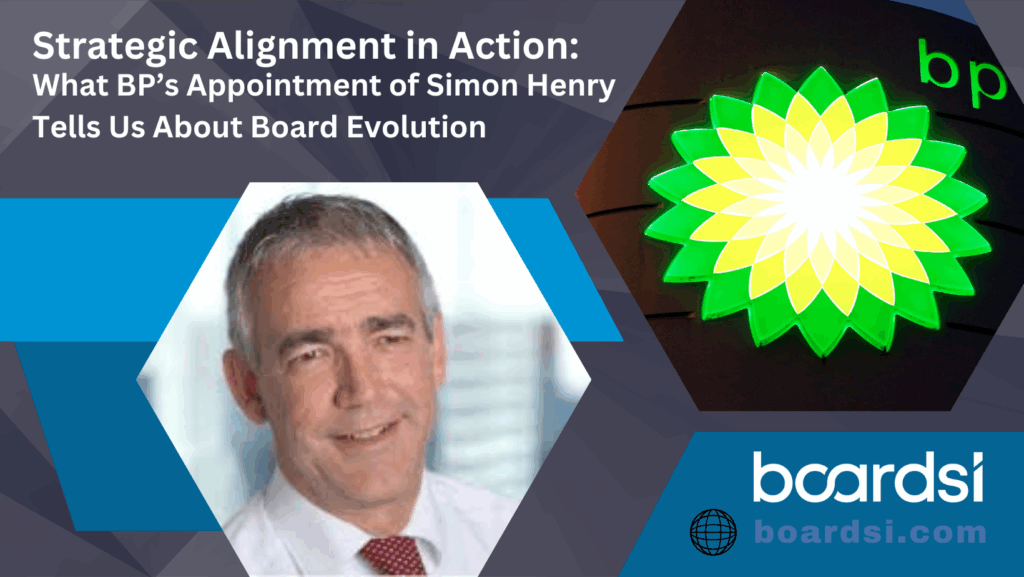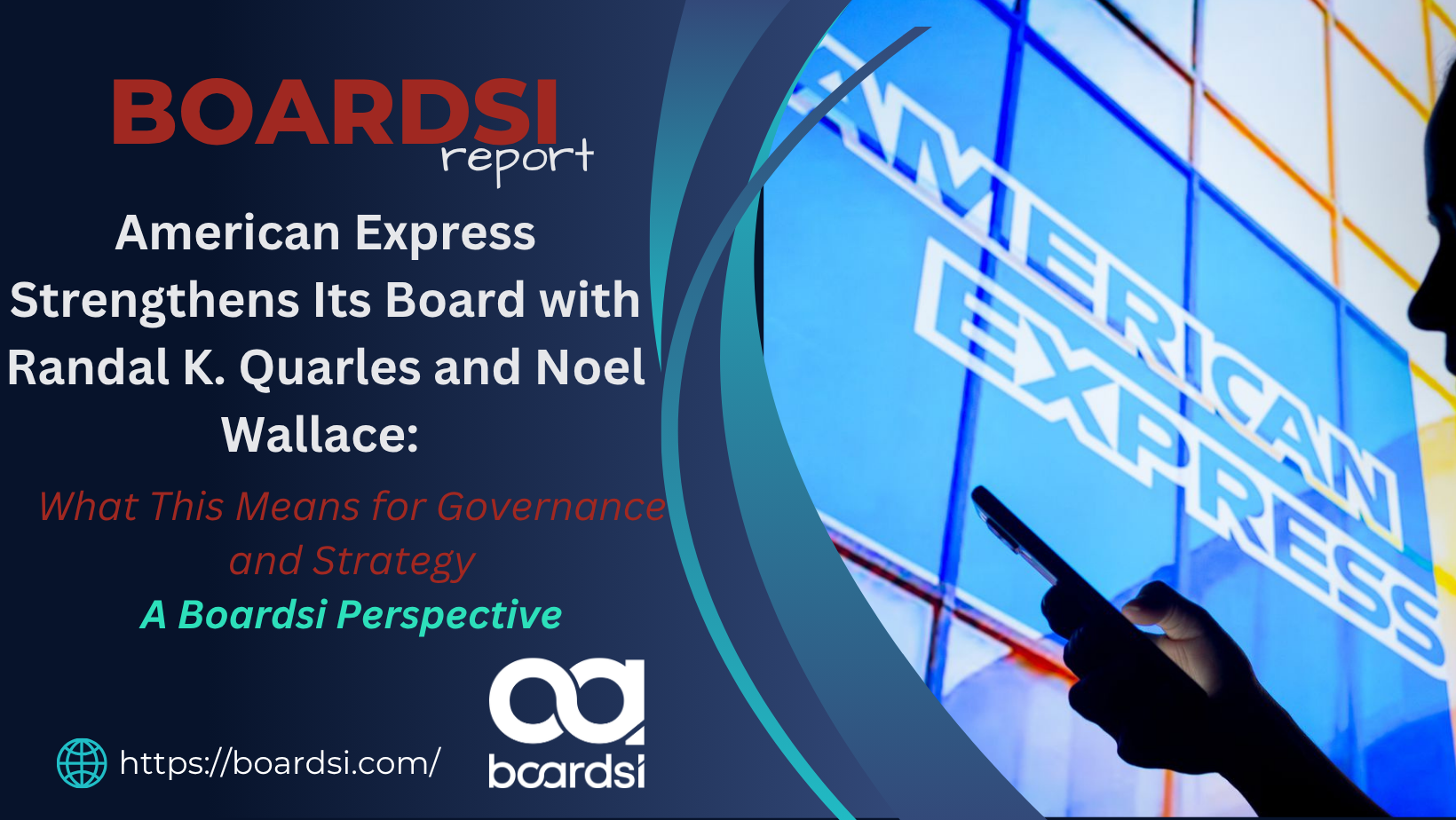When BP recently announced the appointment of Simon Henry, the former CFO of Shell, to its board of directors, they didn’t just add a name to the roster, they executed a strategic move that reflects a larger, necessary trend in corporate leadership.
From my perspective as CEO of Boardsi, this isn’t just news, it’s confirmation. It confirms that forward-thinking organizations, especially global enterprises like BP, understand that success in today’s volatile landscape begins in the boardroom. Adding experienced, specialized leadership at the board level is no longer a nice-to-have. It’s the blueprint for sustainability, agility, and market relevance.
Why Simon Henry?
Simon Henry is not just a financial veteran. He’s a proven architect of transformation. During his tenure as CFO at Shell, he steered one of the largest energy acquisitions in history: Shell’s $54 billion purchase of BG Group. That deal redefined Shell’s footprint in the LNG sector and helped it expand into new global markets with speed and efficiency.
Now, as BP refocuses its energy strategy and rebalances between transition and tradition, the appointment of a seasoned strategist like Henry is precisely the kind of move that signals not just intent, but execution.
But here’s the deeper layer…
What Boardsi Sees Behind the Headlines
At Boardsi, we work with businesses every day that are navigating similar inflection points. Whether it’s adapting to new regulations, entering new markets, or shifting from growth to profitability, the need for expert guidance, strategic insight, and governance oversight is constant. That’s where the right board members or executive advisors become the company’s most valuable asset.
What BP has done is a clear example of strategic board development: identify where the gaps are, align leadership strengths to mission-critical objectives, and bring in fresh perspective that has done it before, at scale.
We don’t place names on resumes. We engineer leadership alignment. That means not just understanding who a candidate is, but how they function within the existing boardroom dynamic. That’s why, beyond sourcing and matching, we provide Executive Impact Reports, Board Education, and Leadership Evaluation, tools designed to empower companies to make informed, future-proof decisions.
What This Means for Mid-Market and Growing Companies
If a global enterprise like BP is making these kinds of strategic board adjustments, it should be a wake-up call to every growth-stage company, private equity portfolio, or fast-scaling startup:
Do you have the right voices in your boardroom to guide your next chapter?
Companies that succeed don’t wait until things fall apart—they build resilient leadership early. They know that strategy without governance is guesswork. Whether it’s a technology firm needing cybersecurity expertise or a manufacturing company preparing for expansion, the principle is the same: get the right people at the table.
Boardsi’s entire model is built on that principle.









